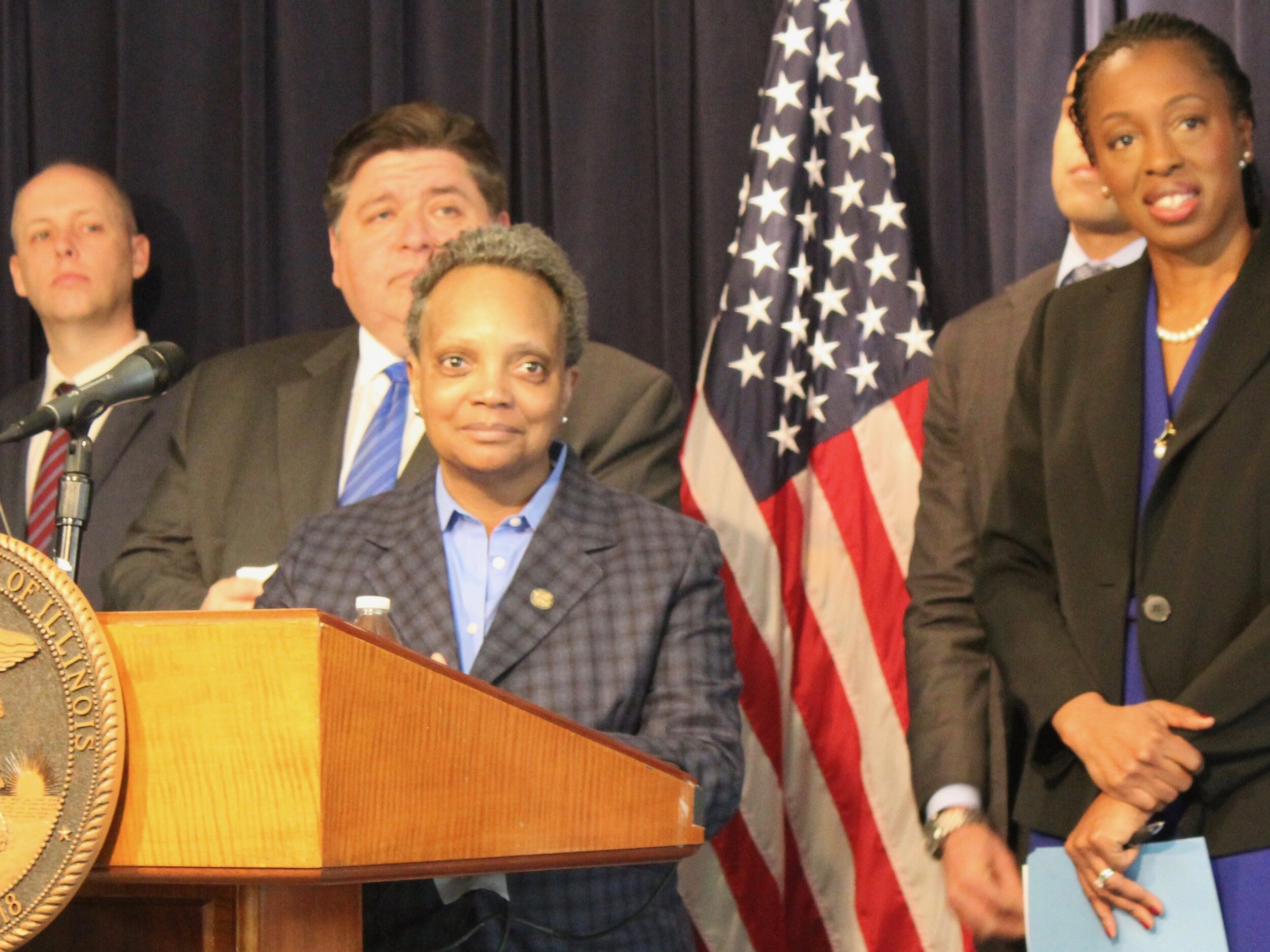Lightfoot 'cheers' ruling on sanctuary cities
Appellate court defends Chicago against retribution by Trump administration
Mayor Lori Lightfoot, seen here at a coronavirus briefing in late February, says, “I let out a cheer” when an appellate court ruled to protect federal funding for Chicago as a sanctuary city. (One Illinois/Ted Cox)
By Ted Cox
Chicago Mayor Lori Lightfoot said she literally cheered a court ruling protecting the self-declared sanctuary city from retribution by the Trump administration.
President Trump has threatened to withdraw federal funding from Chicago over its status as a sanctuary city for years. Lightfoot’s predecessor Mayor Rahm Emanuel dismissed that out of hand, but it came to a head when the U.S. Justice Department moved to deny the city federal funds for law enforcement over its stand welcoming immigrants.
“When I got the news from our corporation counsel earlier this morning, I let out a cheer,” Lightfoot told reporters Thursday.
She cited Emanuel in issuing a formal statement later in the day, saying, “Mayor Rahm Emanuel began this battle, and my administration has continued to fight hard to ensure we receive the funds we are entitled to without bending to the political agenda on immigration that the Trump administration is trying to force upon us as a Welcoming City.”
U.S. Attorney General William Barr attempted to fulfill President Trump’s desire to deny federal funding to sanctuary cities. (One Illinois/Ted Cox)
According to Chicago’s Law Department, the Trump administration moved in 2017 to deny the city funding under the Justice Assistance Grant program, “which is money earmarked for community policing efforts and other public safety measures and which was created in 2005.” In the midst of what was then a spike in murders across the city, those funds were designated for “ShotSpotter technology, which is used to identify the location of shooting incidents and direct rapid police responses to them.”
The Law Department charged that “since 2017, the Justice Department has sought to impose immigration-related conditions in order for state and local governments to get the funds.”
Emanuel had stated all along that that was illegal, and the Lightfoot administration pursued the case against U.S. Attorney General William Barr. On Thursday, the U.S. Seventh Circuit delivered a rebuke to the Trump administration, ruling that “the attorney general cannot pursue these policy objectives of the executive branch through the power of the purse or the arm of local law enforcement.”
Chicago Corporation Counsel Mark Flessner said the ruling protected sanctuary cities across the nation, issuing a statement saying, “This is the first court-of-appeals ruling to strike down these conditions on a program-wide and forward-looking basis, ordering that the Justice Department cannot impose them anywhere in the country, now or in the future.”
Sanctuary cities protect even undocumented immigrants from prosecution by federal authorities, and Chicago, like many others, has formally forbidden its police department and other city agencies from aiding U.S. Immigration and Customs Enforcement agents in rounding up undocumented residents.


